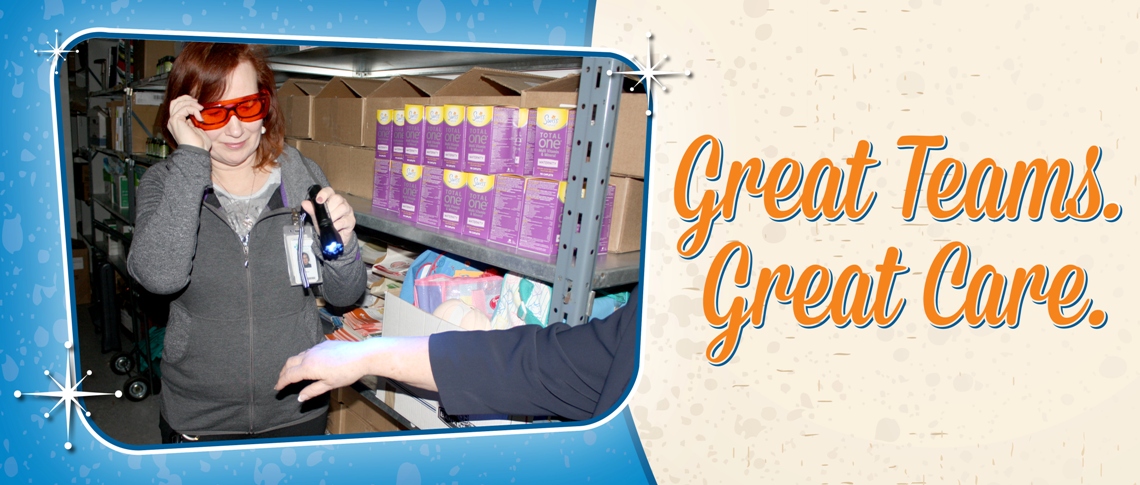

Story by Laura Manuel
When a Sexual Assault Response Team (SART) registered nurse (RN) gets a call, they pack their kits and drive to the patient.
“After police and EMS, our SART team is immediately contacted,” says Kathleen Soltys, program manager for SART. “A SART nurse will do the exam of the victim in the ER and offer support.”
It’s a stressful job. A SART nurse plays a unique role in a time of crisis. SART nurses are all registered nurses who are internationally certified in forensic nursing. They have skills to connect with patients to get them to talk and make them feel safe.
“It was chilling to get a call about a woman who had been severely assaulted, injured, and left for dead by her attacker,” says Soltys. “This example, however, is one of success. Not because the attacker was found guilty due to evidence collected during the SART exam, but because the patient was given hope.”
Other health professionals in the emergency department are unlikely to spend several hours one-on-one with a patient; a SART nurse is dedicated to providing medical, emotional and psychological support.
“We see victims huddled under blankets refusing to talk who turn into people who can tell their story with conviction,” says Jaana Ohinmaa, SART RN.
The SART team is unique to the Edmonton Zone. Comprised of six part time RNs, they are on call 24/7. Their role is to provide support for victims of sexual assault and to collect evidence that can be used in the legal system.
What makes this team unique is the comradery. Most of the team has been together for 10 years. They consider themselves a family. They work, play and have fun together which helps them deal with the stress of their work.
“As part of our job, we have to attend court to testify on behalf of the victim,” says Ohinmaa. “Testifying is very stressful so we always take another member of the team along for support. We are always there for each other.”
In addition to working so closely together they also interact with unit clerks, social workers, physicians, and community agencies.
“Basically we interact with everyone in the ER,” explains Ohinmaa. “We also work with community partners such as public health programs like the Birth Control Centre and Infectious Disease programs.”
The long-term impact of SART is significant. Soltys explains that the role of SART reduces the occurrence of Post Traumatic Stress Syndrome (PTSD) and offers hope to victims of sexual assault. This timely support prevents other potential health issues that can arise due to sexual assault.
“We have a great team that does great work,” says Soltys. “Comments from other health providers and the patient are so positive.”
The SART team has been operational, under various program names, for 16 years in the Edmonton Zone.